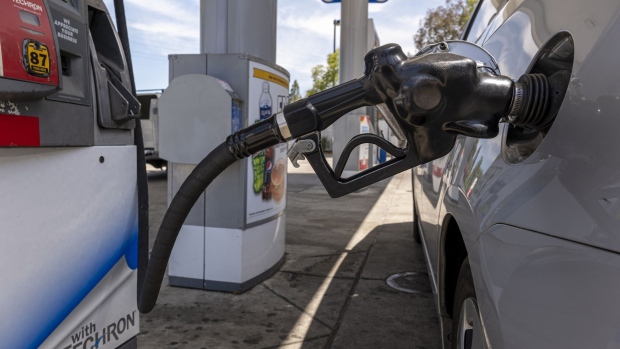Jun 25, 2022
California Tentative Deal Offers Up to $1,050 Gas Price Relief
, Bloomberg News

(Bloomberg Law) -- California families would get as much as $1,050 to offset rising gas prices and inflation under a tentative agreement between Gov. Gavin Newsom and Democrats in the Legislature.
Although a deal on the roughly $9 billion cash relief package isn’t final, lawmakers agree on a handful of other tax policy changes as part of a state budget package of about $235 billion. Those items include a sales tax exemption for diesel fuel and exclusion of forgiven 2021 Paycheck Protection Program loans from state income tax.
Lawmakers and the Democratic governor face a July 1 deadline to finalize details on the cash relief plan and enact the bulk of the state budget package in time for the new fiscal year. Senate and Assembly floor votes on the package are likely to take place on Wednesday or Thursday.
Newsom spokesman Anthony York said no formal agreement has been reached. In a written statement, Senate President Pro Tempore Toni Atkins’ (D) office said Saturday that until all items still being negotiated are final a tentative agreement can unravel.
Under the tentative cash relief proposal obtained by Bloomberg Tax, individuals making as much as $75,000 a year, or joint filers making up to $150,000, would get $350 each plus $350 for one dependent for a maximum of $1,050.
Those with incomes up to $125,000, or $250,000 filing jointly, would get $250 each plus another $250 for one dependent for a maximum of $750. Those earning more than $250,000, or $500,000 filing jointly, would get $200 each plus $200 for one dependent for maximum of $600.
The framework is similar to demands from Democratic leaders to target relief based on income, and abandons Newsom’s push to send $400 to every car owner, with a maximum of $800, regardless of income.
Payments would go to about 17.4 million tax filers, which is 97.5% of all filers. About 500,000 Californians with incomes above $250,000, or $500,000 filing jointly, wouldn’t receive a payment.
Beyond direct cash relief, lawmakers and the governor agree on multiple tax changes that are included in companion bills (A.B./S.B. 194, A.B./S.B. 201) that go along with the primary funding measure. The bills would:
- Exempt diesel fuel from the 3.9375% state sales tax for one year starting Oct. 1 and use general fund money to make up $327 million in lost revenue dedicated for transportation projects;
- Extend the California Competes tax credit program, which awards income tax credits to companies that expand or relocate in the state, through 2027-28 and give greater consideration for tax credit awards to companies relocating from states with restrictive laws on abortion and LGBTQ+ rights.
- Exclude forgiven Paycheck Protection Program loans issued under the PPP Extension Act of 2021 from state income tax;
- Allow the Franchise Tax Board to abate penalties for income tax filers who fail to file or pay on time if they are first-time offenders;
- Expand eligibility for the Main Street tax credit, which is an incentive for small businesses to hire people to help recover from the pandemic, so they don’t have to claim the credit on an original return; and
- Expand eligibility for the earned income tax credit and young child tax credit, and create a new credit for former foster youth of up to $1,176.
To contact the reporter on this story: Laura Mahoney in Sacramento, Calif. at lmahoney@bloomberglaw.com
To contact the editors responsible for this story: Jeff Harrington at jharrington@bloombergindustry.com; Kathy Larsen at klarsen@bloombergtax.com
©2022 Bloomberg L.P.





